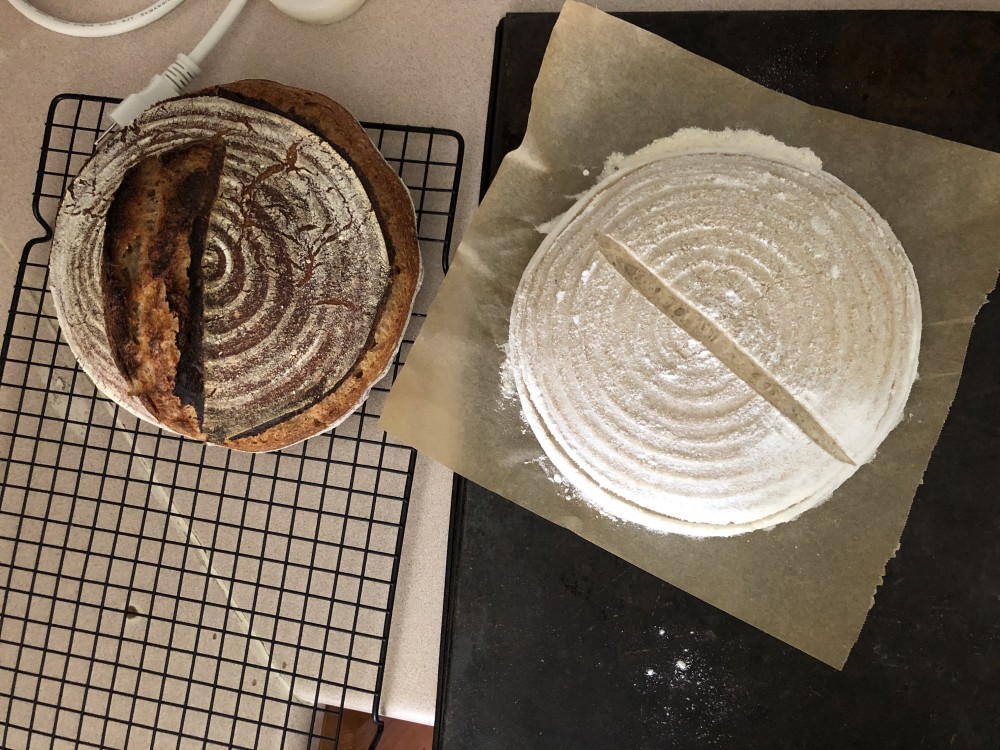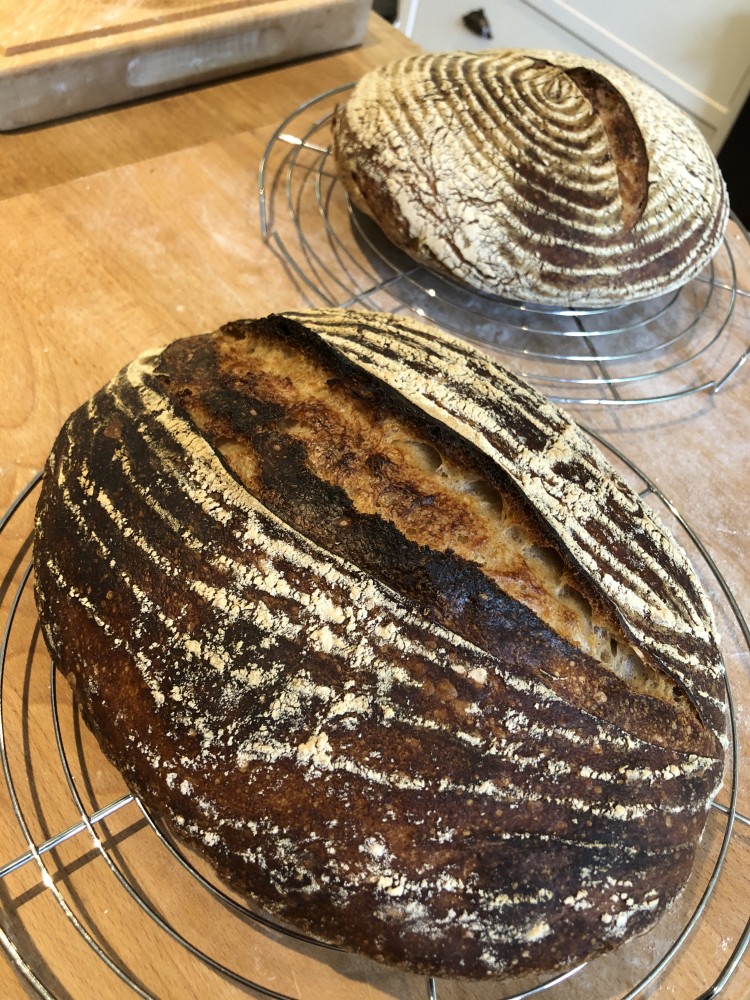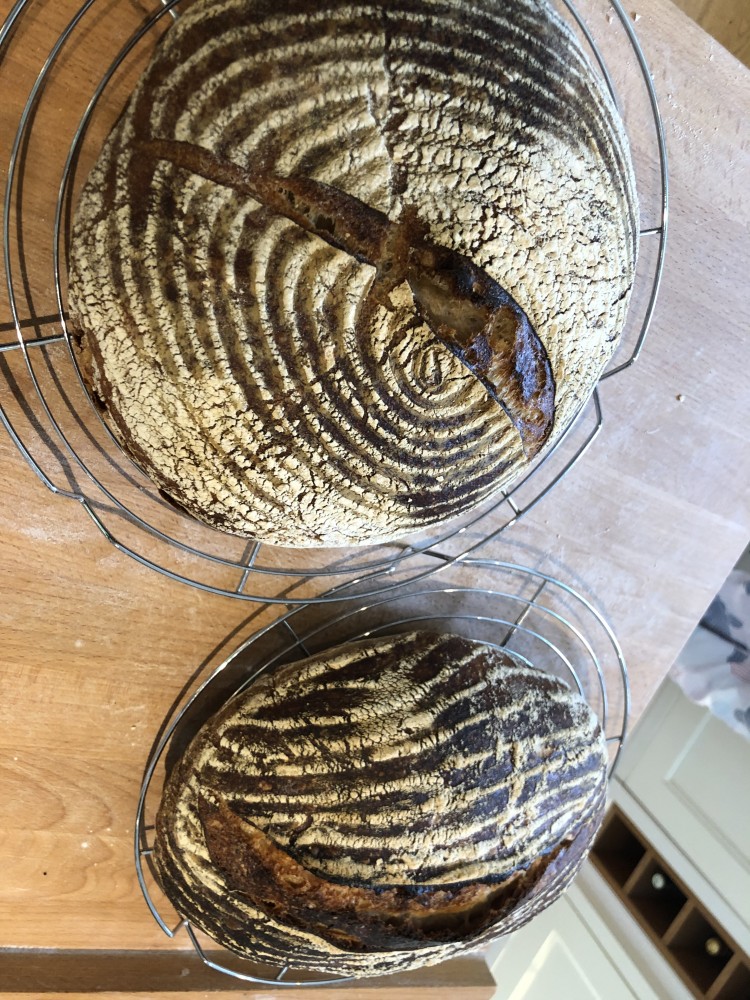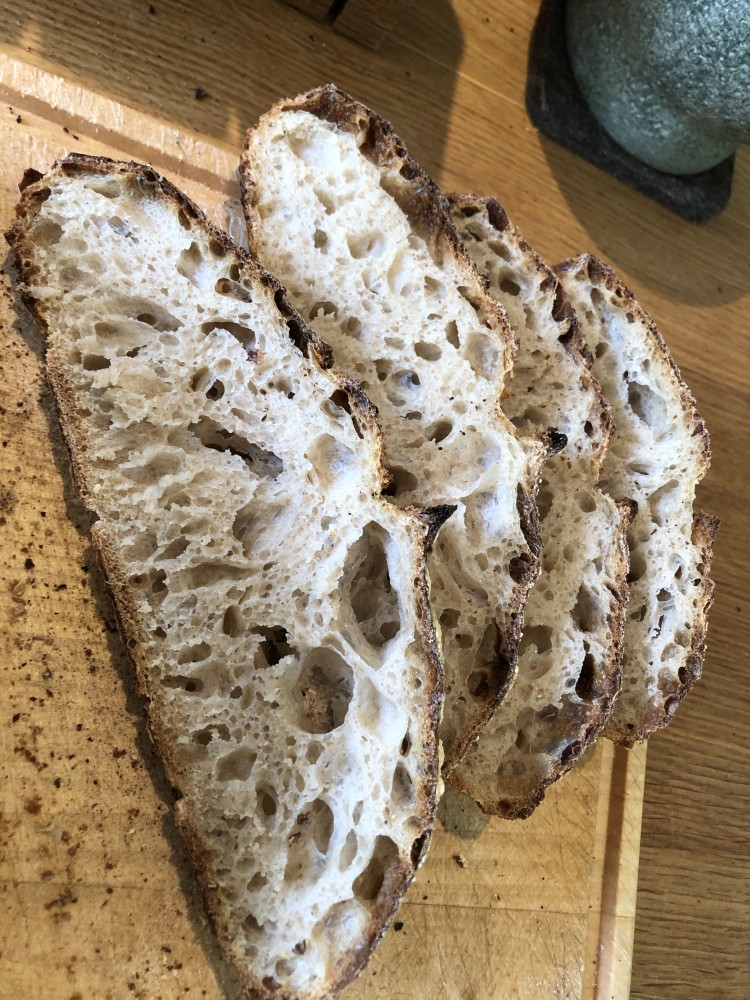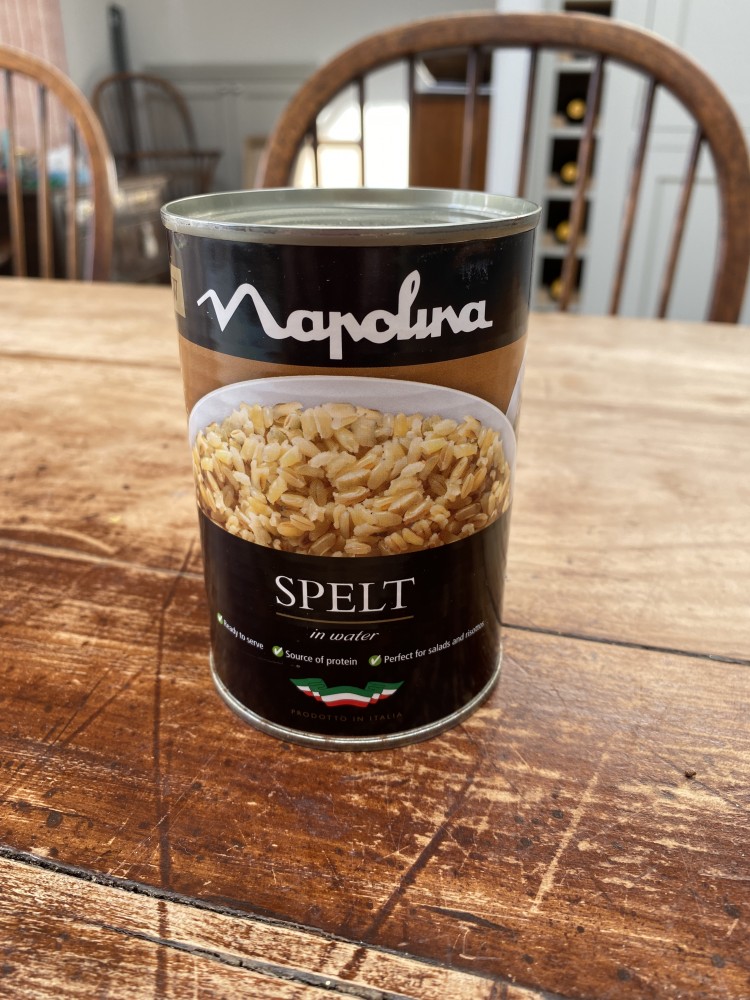Bread - What are you baking today…..
-
Always interesting to see what happens when you change things up. As well as a shorter proofing time, I used a different spelt flour, and both doughs had a higher hydration than normal…
Spelt prepared for the oven...

And done…



And the crumb…

Much better oven spring and not over-proofed.
The crumb was quite different however. Very irregular, with quite dense areas, contrasted with large holes. Whether this was the increased hydration (I was a tad over 80%), the shorter proof, or the new flour, I couldn’t tell you.
-
-
Pizza for dinner, using Forkishs 80% Biga recipe and 00 flour. The texture is noticeably different and better than with ap or bread flour. Wife said it’s the best pizza I’ve ever made. I’ve got one more dough ball in the fridge for tomorrow…
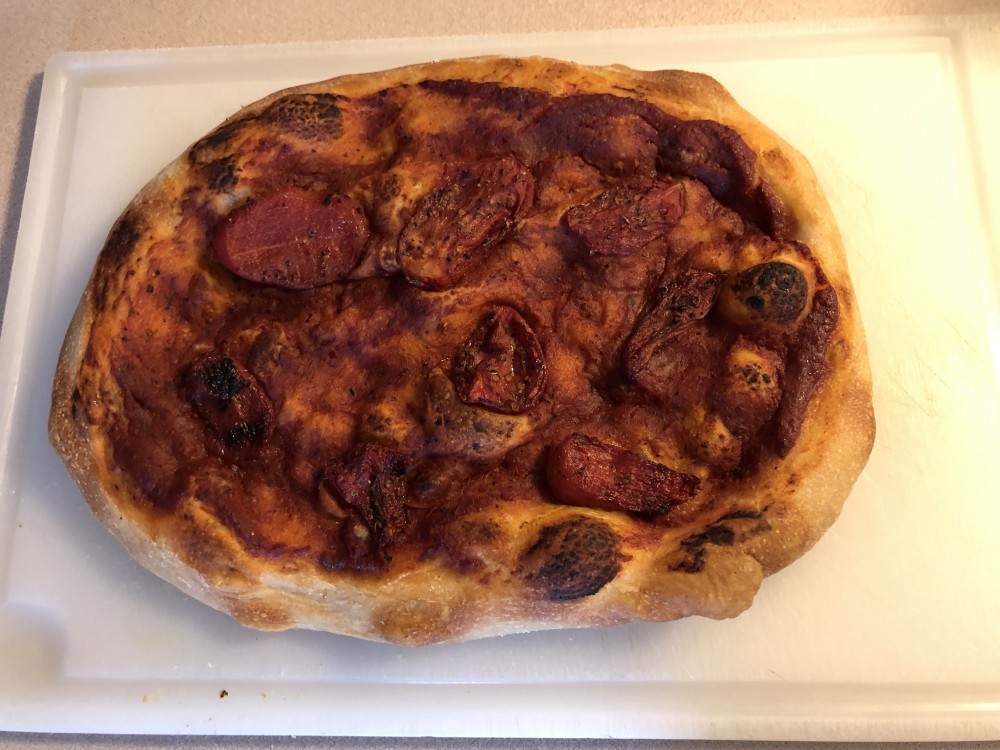
-
@Chap @Giles @neph93 being what I have come to think of as the artisanal gurus about these parts, how long did your first starters take to become levain? I'm 6 days in, using a BBC Good food recipe… Done the browsing youtube/multiple websites etc but thought I'd check with the forum.
I started with 50g org white and 50g water, and a 2nd batch of org stone ground (same vols). I kept adding 50/50 for 4 days as per recipe, then discarded half the mixture yesterday (made delicious savoury pancakes that tasted of mild marmite :D). The I topped of with 100g/100g flour/water. Looking OK today, but didn't pass the float test yet.
I guess they are ready when they are ready, as long as they don't start to smell like sour milk?
-
Count me out. I got bored of keeping the sourdough healthy. So currently I am working on and experimenting with pre-ferments…
I'll likely get back to starters and levains at some point, but I'm enjoying the Poolish and Biga journey and tweaking ratios/timings and flours...
I'm doing an 80% Biga at the moment with 20% Buckwheat flour (it was all I could get from the supermarket at the beginning of the crisis). Buckwheat contains no wheat (
 ) and is gluten free, so it's going to be very interesting to see what happens....
) and is gluten free, so it's going to be very interesting to see what happens.... -
@Stuart.T I currently have two starters on the go, one from rye and one from spelt. I ditched the mix of wholemeal and bread flour early on, in fact the spelt starter has only been made on spelt.
Both of mine took only 48hrs before they were ready but I have a cupboard above my fridge freezer with a constant ambient temp of around 26C. I’ve seen people say 4-7 days. So it may take a while yet.
Temperature is important. Steady and above 20C is ideal, no drafts. The type of flour should be high in protein, wholemeal and organic. The quality of water may affect things. I’ve read that water with a lot of chemicals can cause problems by killing the bacteria on the flour. Finally don’t seal your container. The starter needs air.
Post some pics… I feel like I should be able to spot a living starter by now.
-
Thanks folks. No hope of finding spelt or rye in these parts. 3 local wholefood shops cannot get them back in yet. I've had problems buying flour at all, so settled on organic strong white and stoneground. I haven't mixed the flours, thought I'd try them separately first. Pics later.
I read on the sourdough.co.uk site that live (dried etc) yeasts need heat, natural yeasts need to be slightly cooler.
I keep mine in plastic cannisters (started with Kilner jars… Photogenic but impractical!), lid ajar, ambient temp approx 20c during the day, slightly less at night. Feed them once a day, some sites say you can do this twice a day. They smell pretty good, the stone ground slightly vinegar, the white slightly sweeter.
-
@Stuart.T These guys have reasonable stock levels of some flours:
https://www.fwpmatthews.co.uk/
Including Spelt
https://www.fwpmatthews.co.uk/product/white-spelt-flour/And rye
https://www.fwpmatthews.co.uk/product/matthews-dark-rye-flour/ -
@Giles thank you very much Sir, sincerely appreciated. I much prefer flavoursome flours such as rye and spelt. I will give them a go.
-
Spelt is in short supply up here too. I scored some the other day, happily. Bloody loads of rye but I expect it is more of a staple flour in Norway than in the UK.
Dried yeast likes temps between 20-37C. The blog I used as a take off point recommended 32C water when mixing the starter slightly over room temp for fermenting and I’ve stuck to that. I’d suggest the temperature is what is making it slow going.
-
Did a quick read….another source suggesting a starting temp of 32C is important....
https://en.m.wikipedia.org/wiki/Sourdough#/media/File%3ASourdough-process.svg
-
@Stuart.T mine have been a good ten days or so to get going. So much that I wondered if I messed something up. Just took some time. Ambient temps of ~70F/21C.
You’ll notice a smell for sure, but it should be pleasantly yeasty with a little tang. The resulting bread is not really sour at all. You could give it to someone who doesn’t like sourdough without telling them and they’d have no clue. -
^agree, a good read.
I made the same French Rye clone this week as last, changed proportions to:
75% bread flour
25% rye flour
79% water
4.2% cider
2.2% salt
Used 50 g of both the bread and rye flours plus 100g of the water and 50g of starter to make the levain, but otherwise followed the same schedule as previously posted. Cider was supposed to be 4%, but I froze the remainder from last week in ice cube trays, turns out two cubes = 42g. Guess I could’ve poured off 2g.
